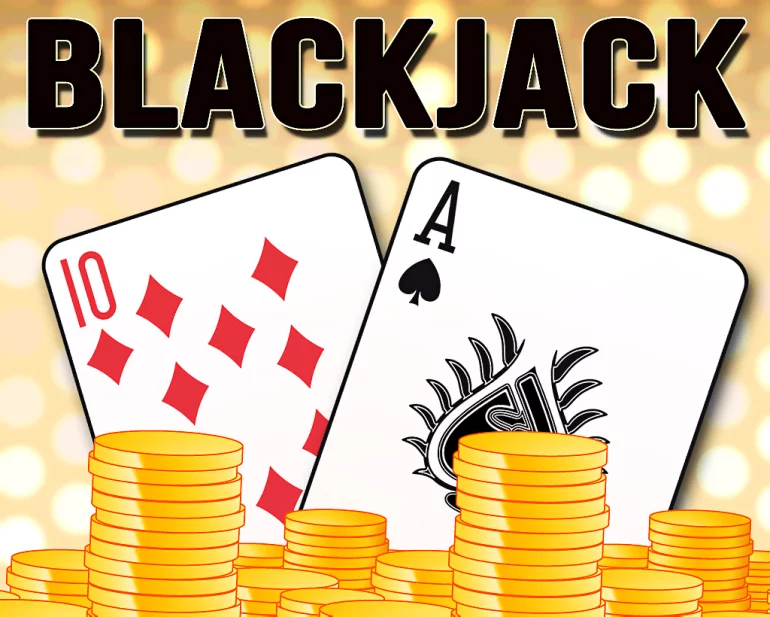This article is not about basic strategy principles, deposits, and other nuances of the game, as well as tricks. We assume people who read it are not regulars in the casino but periodically test their fortunes at a blackjack table. Agree that there are a lot of such players. You could even say that many professionals began their careers with such an attitude. So, some principles will vary from complex strategies to meet various conditions.

So we will talk about emotions in handling your bankroll and some other points that affect successful money management.
Blackjack is a relatively volatile game. You may experience nasty luck streaks, so you must learn to control yourself, plan the distribution of your finances, and skillfully make bets. After two or three defeats, players become amenable to their emotions and unnecessarily raise the stakes, hoping to win back in one swoop. Such a game is unwinnable and will never give you fun.
Even relatively stable positive results in blackjack are only possible with proper bankroll management. Here are its fundamental rules.
Do Not Gamble with Your Last Money
One of the most important rules for any game, including blackjack, is playing only for the money you can afford to lose. If there is any reason (emotional, moral, or financial) to refrain from playing in the specific case, it is better to do it. Professionals start the game only with a particular portion of their bankroll. This is money specially designed for this purpose. And you should only risk that the amount lost will bring you too strong shocks. Never bet money that was intended for other purposes.
Of course, you must not borrow money for playing at casinos. This practice is widely spread, but it is the worst thing for a player.
We advise you because the player's emotional state is greatly enhanced when he is too afraid of losing money. Such experiences make the game torture and force players to make wrong decisions. You sit at the table to recharge your positive energy. You might get a heart attack. In your head, there should not be thoughts about losing. If you start scrolling through options, such as where to get more money, how to plug a gap in the finances in case of loss, or where to get more money, it is a sign that you must stop playing.
It is better to try winning back the next day when the storm of emotions in your soul settles, and you will think soberly again. Rest will allow you to organize your thoughts, analyze your mistakes, and even wait for other dealers' shifts. The last point will help you, at least psychologically.
| Name | Soft | RTP | ||
|
|
99.92% | |||
|
|
99.91% | |||
|
|
99.87% | |||
|
|
99.78% | |||
|
|
99.71% | |||
|
|
99.7% | |||
|
|
99.69% | |||
|
|
99.65% | |||
|
|
99.63% | |||
|
|
99.63% |
Have a Sufficient Bankroll
If you plan to play blackjack for a long time, take a large enough amount for the game. However, you can go on the reverse: make the bets according to your bankroll. The sum should be large enough to exclude the possibility of a prolonged series of defeats. So, do not rush to raise bets immediately if you are starting to lose. If today is not your day, the chances of losing all the money at once are too large. Do not give your fate entirely to the hands of fortune.
Vary bets in the range of a few units. We recommend playing within four to six bets. For example, starting the game with five dollars, never bet more than twenty or thirty dollars.
But even with this approach, it makes sense to come to the casino, hoping for eight to ten hours of play, with money for 150-200 bets. Starting with five dollars and not exceeding thirty, you should take about a thousand. Playing at the lower-stakes table is better if you do not have it.
Nevertheless, if you play without changing the bet, the bank may be enough for 50-100 bets. With this approach, you can play for ten to twenty hours at a stake of five dollars, bringing 250-500 dollars.
Of course, with a favorable scenario, you might get lucky at the start, and you will begin to play in the casino. But if luck turns its back on you, you will have stock from the tipping point.
Split Your Whole Bankroll into Several Amounts
It is better to divide the whole process into game sessions, each with no more than thirty bets. That's enough to cover the various fluctuations in the game.
After losing the allotted amount or reaching the other limits, it is better to take a break and relax. You can change the table or even a game. It depends on your preferences and taste. Following this tactic, you will not quickly lose all your money and have more chances to win back at the start of the failure.
Just Stop Playing
If a player can control himself and does not surrender to emotions, he will come away with a win or a loss within the set amount. A cold-blooded player never allows himself to be left without money after the first game. He also never loses all the money won at some point during a gaming session.
In other words, a good player knows when he must stop playing.
So, do not raise bets above your capabilities, do not pursue the maximum win, and get up from the table - all of this will help you reduce the size of your loss.
If you are lucky, place the won money in the untouchable stack, and under no circumstances do not take the chips from it. Once the rest of the money runs out, stop the game. You can set yourself a certain amount to stop.
Increasing bets in a successful game are also quite risky because losing even a couple of hands with big bets can rob you of all previous winnings. In addition, the bet size does not influence the house edge, so it is best to stick to a selected range with all hands. Success in blackjack mostly depends on making the right decisions. This is an intellectual game, and "jumping" at bets should be reasonable.
To summarize the above, if you plan to continue playing blackjack, take the time to study the basic strategy first. Without it, your results will be too unstable.





















